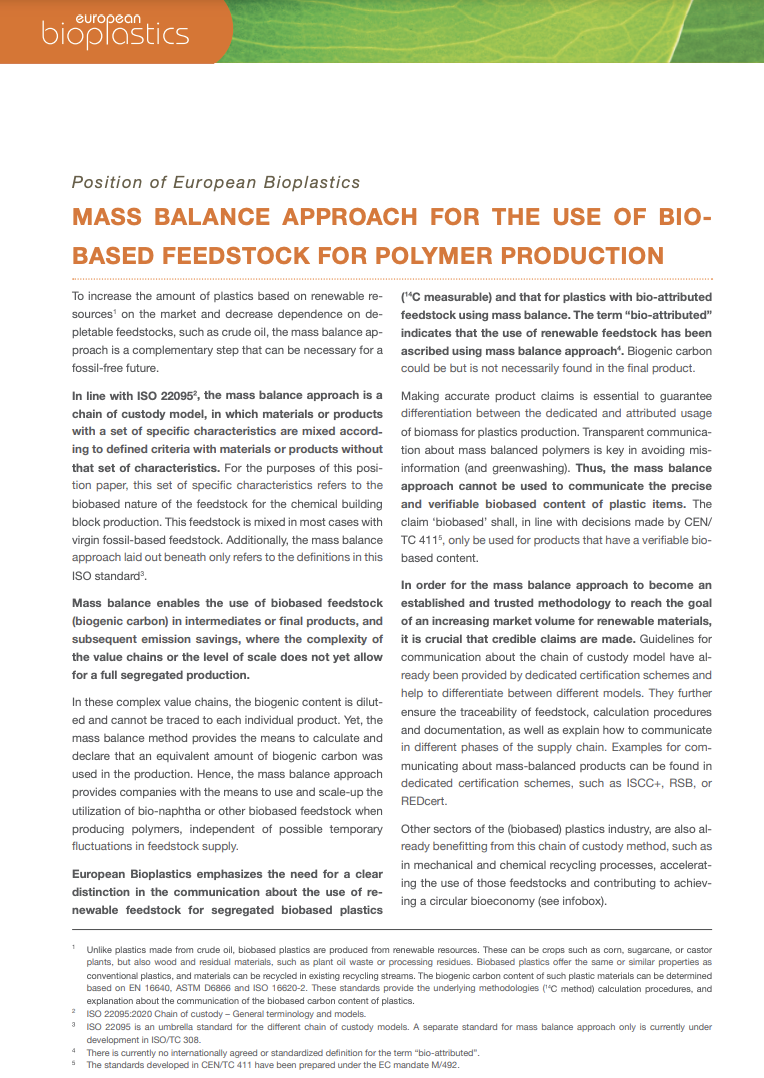To increase the amount of plastics based on renewable resources on the market and decrease dependence on depletable feedstocks, such as crude oil, the mass balance approach is a complementary step that can be necessary for a fossil-free future.
In line with ISO 22095, the mass balance approach is a chain of custody model, in which materials or products with a set of specific characteristics are mixed according to defined criteria with materials or products without that set of characteristics. For the purposes of this position paper, this set of specific characteristics refers to the biobased nature of the feedstock for the chemical building block production. This feedstock is mixed in most cases with virgin fossil-based feedstock. Additionally, the mass balance approach laid out beneath only refers to the definitions in this ISO standard.
Mass balance enables the use of biobased feedstock (biogenic carbon) in intermediates or final products, and subsequent emission savings, where the complexity of the value chains or the level of scale does not yet allow for a full segregated production.
In these complex value chains, the biogenic content is diluted and cannot be traced to each individual product. Yet, the mass balance method provides the means to calculate and declare that an equivalent amount of biogenic carbon was used in the production. Hence, the mass balance approach provides companies with the means to use and scale-up the utilization of bio-naphtha or other biobased feedstock when producing polymers, independent of possible temporary fluctuations in feedstock supply.
European Bioplastics emphasizes the need for a clear distinction in the communication about the use of renewable feedstock for segregated biobased plastics (14C measurable) and that for plastics with bio-attributed feedstock using mass balance. The term “bio-attributed” indicates that the use of renewable feedstock has been ascribed using mass balance approach. Biogenic carbon could be but is not necessarily found in the final product.
Making accurate product claims is essential to guarantee differentiation between the dedicated and attributed usage of biomass for plastics production. Transparent communication about mass balanced polymers is key in avoiding misinformation (and greenwashing). Thus, the mass balance approach cannot be used to communicate the precise and verifiable biobased content of plastic items. The claim ‘biobased’ shall, in line with decisions made by CEN/ TC 411, only be used for products that have a verifiable biobased content.
